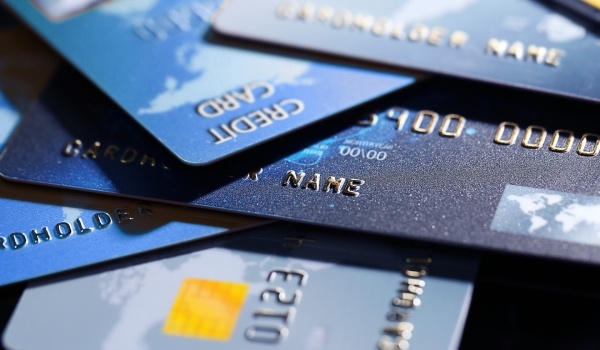The Ultimate Guide To Business Finances for small businesses
Business Finance
UPDATED ON 2024
10 MIN READ
Introduction to Business Finances

What are Business Finances?
Business finances refer to the financial resources and activities of a business, including the management of money, budgeting, accounting, financial planning, and analysis. Business finances are essential for the success of any business, regardless of its size or industry. These finances enable a business to operate efficiently, make informed decisions, and achieve its financial goals.
The Importance of Managing Business Finances
Managing business finances is crucial for the success of any small business. It helps to track income and expenses, monitor financial performance, and make informed and knowledgeable financial decisions. Proper financial management enables a business to:
- Keep track of its financial position and performance
- Identify areas for cost savings and revenue growth
- Make informed investment and financing decisions
- Meet regulatory requirements and tax obligations
- Ensure the long-term financial stability and growth of the business
Key components of Business Finances
The key components of business finances include:
- Accounting: The process of recording, classifying, and summarizing financial transactions of a business.
- Budgeting: The process of forecasting and allocating financial resources to achieve a business's goals.
- Financial Planning: The process of setting financial goals and developing strategies to achieve them.
- Financial Analysis: The process of examining financial data to evaluate a business's financial performance and make informed decisions.
- Cash Flow Management: The process of monitoring and managing the inflow and outflow of cash to ensure a business has enough cash to meet its obligations.
- Tax Planning and Compliance: The process of managing tax obligations and complying with tax regulations to avoid penalties and ensure the financial stability of the business.
Business Finance 101

Understanding Financial Statements
Financial statements are documents that provide information about a company's financial performance and position. The three primary financial statements are the balance sheet, income statement, and cash flow statement.
The balance sheet shows a company's assets, liabilities, and equity at a specific point in time, providing insight into its financial position. The income statement shows revenue, expenses, and net income over a specific period, providing insight into its profitability. The cash flow statement shows a company's inflows and outflows of cash over a specific period, providing insight into its liquidity.
Balance Sheet
A balance sheet is a financial statement that provides a snapshot of a company's financial position at a specific point in time. It lists the company's assets, liabilities, and equity, and shows how these components are related. The balance sheet is an essential tool for investors, analysts, and management to assess a company's financial health. It can help identify trends in the company's financial position and inform decisions about resource allocation.
Income Statement
An income statement, also known as a profit and loss statement, shows a company's revenue, expenses, and net income over a specific period. It provides insight into a company's profitability and helps investors, analysts, and management evaluate the company's financial performance. The income statement is an important tool for assessing the company's ability to generate revenue and manage expenses effectively.
Cash Flow Statement
A cash flow statement shows a company's inflows and outflows of cash over a specific period. It helps investors, analysts, and management assess a company's liquidity and ability to generate cash.
Cash flow is critical to a company's financial health, as it affects its ability to pay debts, invest in growth, and distribute dividends to shareholders. The cash flow statement helps to identify sources and uses of cash, providing valuable insight into a company's financial operations.
Budgeting and Financial Planning
Budgeting and financial planning involve setting financial goals, creating a budget, and developing strategies to achieve those goals. Effective budgeting and financial planning are essential for a company's success, as they enable management to make informed decisions about resource allocation and investment. It involves developing realistic financial projections, identifying potential risks, and implementing contingency plans to mitigate those risks.
Financial Metrics and Key Performance Indicators (KPIs)
Financial metrics and key performance indicators (KPIs) are measures that assess a company's financial performance and position. Examples of financial metrics include revenue growth, gross profit margin, and return on investment (ROI).
KPIs can vary depending on the company's industry, size, and objectives. Financial metrics and KPIs help management identify areas of strength and weakness and develop strategies to improve performance.
The Role of Financial Management in Business Success
It involves strategic planning, budgeting, accounting, and monitoring of a company's financial activities.
Effective financial management helps management make informed decisions about resource allocation, risk management, and investment. It also helps to ensure that the company remains compliant with regulatory requirements and ethical standards. A well-managed financial operation can help a company weather economic downturns, seize opportunities for growth, and ultimately achieve long-term success.
Small Business Finances

Establishing a Financial Foundation for Your Small Business
To establish a solid financial foundation, small businesses should create a financial plan, set up an accounting system, and secure the necessary funding. A financial plan outlines financial objectives and strategies to achieve those objectives. An accounting system enables businesses to track financial transactions, simplifies tax preparation, and facilitates future business planning. Securing funding options such as business loans, grants, or investors provides the capital necessary to start and grow the business.
Managing Cash Flow and Working Capital
Effective cash flow management is crucial to a small business's financial stability and growth. It involves tracking incoming and outgoing cash, monitoring payment collections, and prioritizing expenses.
Working capital management is also essential to maintain liquidity and involves monitoring current assets and liabilities. This ensures that the business has sufficient cash flow to meet its obligations and to grow.
Separating Personal and Business Finances
Separation includes opening a separate bank account, creating a budget, and tracking expenses. Separating personal and business finances simplifies tax preparation, protects personal assets from business liabilities, and helps identify the business's profitability.
Tax Planning and Compliance for Small Businesses
Small businesses must comply with tax regulations to succeed. They must track expenses, maintain accurate records, and file tax returns on time. Tax planning can minimize tax liabilities and maximize deductions, resulting in significant cost savings. Seeking professional advice can help small businesses.
Business Financing Options

Traditional Bank Loans
Traditional bank loans are a popular and well-known financing option for businesses. These loans are usually secured by collateral and require a good credit score and financial history. They typically offer competitive interest rates and flexible repayment terms, making them an attractive option for businesses that need a significant amount of capital.
However, the application process can be lengthy and time-consuming, and approval is not always guaranteed. Additionally, businesses that have trouble making timely payments risk losing their collateral.
Small Business Administration (SBA) Loans
SBA loans are a type of loan provided by the US Small Business Administration that helps businesses access capital. These loans offer favorable terms, such as lower interest rates and longer repayment periods, than traditional bank loans.
SBA loans also come with less stringent requirements, making them an attractive option for small businesses that may not qualify for traditional bank loans. However, the application process can be lengthy and the approval process can be competitive, with many other businesses vying for limited funds.
Business Credit Cards
Business credit cards allow businesses to access credit to cover expenses without having to secure collateral. They offer flexibility, convenience, and rewards such as cash back or airline miles.
Unfortunately, they often come with high-interest rates and penalties for late payments. Businesses should carefully consider their spending habits and ability to pay off the balance in full each month to avoid accumulating debt.
Lines of Credit
Lines of credit allow businesses to access funds on an as-needed basis. They offer flexibility and can be used to cover a variety of expenses, such as inventory or payroll. They typically come with lower interest rates than credit cards and can be a good option for businesses that need working capital. However, businesses need to have a good credit score and financial history to qualify, and they may be required to secure the line of credit with collateral.
Invoice Financing
Invoice financing allows businesses to receive funds upfront for outstanding invoices, providing immediate cash flow to cover expenses. This type of financing can be especially helpful for businesses with slow-paying customers. The lender typically advances a percentage of the invoice value and charges a fee for the service.
It's important to note, however, that this type of financing can be expensive, and businesses need to carefully review the terms and fees before agreeing to the financing.
Merchant Cash Advances
Merchant cash advances provide businesses with a lump sum of cash in exchange for a percentage of their future credit card sales. This can be an attractive option for businesses that have a high volume of credit card transactions but may not qualify for traditional financing. However, merchant cash advances can be expensive and come with high cost of capital and fees.
Equity Financing
Equity financing involves selling ownership shares in the business to investors in exchange for capital. For businesses that have significant growth potential but may not qualify for other financing options, this can be a very good option.
Additionally, investors can provide valuable advice and industry connections. However, giving up ownership shares means giving up a portion of control over the business, and investors may have different priorities and goals than the business owner.
Tips for Improving Your Business's Financial Health

Implementing Financial Controls
Implementing financial controls is essential for any business that wants to achieve financial stability and growth. These controls involve putting in place systems and procedures that govern the way you manage and track financial transactions.
Examples of financial controls include creating a budget, monitoring cash flow, and implementing internal controls to prevent fraud.
Regular Financial Monitoring and Analysis
Regular financial monitoring and analysis are crucial for maintaining a healthy financial position. This involves monitoring financial statements and other key performance indicators to understand the financial health of your business. By doing so, you can identify potential financial issues early and make informed decisions about your business's future. Financial analysis helps you understand the key drivers of your business's success and enables you to adjust your strategy accordingly.
Maintaining an Emergency Fund
Maintaining an emergency fund is vital for any business that wants to be prepared for unexpected events that can impact its financial health. By setting aside funds in advance, you can weather financial storms such as economic downturns, natural disasters, or unexpected expenses. Having an emergency fund provides a buffer to help you avoid taking on debt or making other financial compromises during tough times.
Debt Management and Reduction Strategies
Debt management and reduction strategies can help your business manage its debt load more effectively. This involves prioritizing high-interest debt and paying it down as quickly as possible. It also involves negotiating better repayment terms with creditors and seeking out opportunities to refinance debt at lower interest rates. By managing debt effectively, you can free up cash flow for other business expenses and reduce the risk of financial distress.
Business Financial Decisions Can Be Made Easier with Revenued

How Revenued Supports Small Business Finances
Revenued is a business funding company that provides financing based on a business's revenue, rather than the owner’s personal credit score. This makes it an excellent option for small businesses that may have a limited credit history or a less-than-good credit score.
The Revenued Business Card is not a credit card, but instead it is a purchase of future receivables that utilizes revenue-based financing to provide a prepaid debit card for your business finances. Although not a credit card, the Revenued Business Card can be used for purchases in store or online similarly to a business credit card. Funding is delivered on a just-in-time basis as card transactions occur.
How Can Revenued Help Me Manage My Business Finances?
Revenued offers several tools and services to help small business owners manage their finances. The Revenued Business Card offers online account management tools, allowing businesses to track their spending and monitor their rewards. In the Revenued desktop and mobile app, account holders are able to view their recent transactions, see their payment calendar, access their rewards, and more.
Additional Resources for Business Finances

Recommended Tools and Software for Business Finances
Maintaining and managing your business's finances is critical for its long-term success. There are many tools and software available to help you do this efficiently. Here are a few recommended options:
- QuickBooks: This accounting software is widely used by small businesses and is known for its user-friendly interface and comprehensive features. QuickBooks allows you to track expenses, create invoices, and manage payroll.
- Expensify: This expense tracking software allows you to easily keep track of your business expenses and receipts. It also integrates with accounting software such as QuickBooks. tools.
- Gusto: This payroll software allows you to easily manage payroll, benefits, and compliance for your employees. It also integrates with other accounting software such as QuickBooks.
Online Courses and Workshops on Business Finance
Online courses and workshops can provide valuable insights and knowledge on managing and improving your business's financial health. These courses are often taught by experts in the field and can provide practical tips and tools. Some popular online courses and workshops on business finance cover topics such as:
- Financial Analysis for Non-Finance Managers: Courses that cover this topic teach the basics of financial analysis and how to interpret financial statements for the small business owner who might not have a finance background.
- Financial Planning for Small Businesses: This type of workshop covers the basics of financial planning for small businesses. It will discuss subjects like how to create a budget and why it's important to forecast cash flow.
- Business Finance Essentials: Courses covering this area will take a look at key topics in business finance, including financial planning, budgeting, and forecasting, and why they are vital for businesses to maintain a healthy financial situation.
Books and Blogs for Business Finance Insights
There are many books and blogs available to help you gain insights and knowledge on managing and improving your business's financial health. Here are a few popular options:
- "The Lean Startup" by Eric Ries: This book covers the basics of building a successful startup, including managing finances and cash flow.
- "Profit First" by Mike Michalowicz: This book provides a simple yet effective method for managing cash flow and ensuring profitability.
- "The Balance Small Business" blog: This blog covers a variety of topics related to small business finances, including accounting, taxes, and financing options.
- "The Simple Dollar" blog: This blog provides practical tips and advice on personal and business finance, including budgeting and managing debt..
Read More About Business Finance
FAQs About Business Finance
Improving your business's cash flow can be achieved through several strategies. One option is to optimize your inventory management by reducing inventory levels and increasing inventory turnover. You can also implement a discount or promotion strategy to encourage prompt payments from customers.
Additionally, negotiating better payment terms with suppliers can help to improve your cash flow. Another option is to consider alternative financing options such as invoice financing or lines of credit.
Creating a financial forecast for your business requires an understanding of your past financial performance, market trends, and your future goals. Start by identifying your key revenue drivers and expenses, then forecast them based on historical trends, market research, and projected changes in your business.
Incorporate multiple scenarios into your forecast, including best-case and worst-case scenarios. This can help you to identify potential risks and opportunities for your business. Regularly reviewing and adjusting your financial forecast can help you to stay on track toward achieving your financial goals.
The most important financial metrics for your business will depend on your industry, business model, and goals. However, some commonly used metrics include revenue, gross profit margin, net profit margin, cash flow, and return on investment.
These metrics can help you to track your business's financial performance over time and identify areas for improvement. It's important to regularly review your financial metrics and adjust your business strategy as needed to maintain a healthy financial position.
The two basic ways to finance a business are debt financing and equity financing. Debt financing means borrowing funds from lenders, such as banks or financial institutions, which need to be repaid over time, with interest.
Equity financing, on the other hand, involves selling a portion of the business ownership to investors in exchange for capital. This capital does not need to be repaid, however, it does result in a dilution of ownership. Each method has its advantages and considerations, and the choice depends on factors like the business's financial situation, growth plans, and desired level of control.
The amount of debt a small business should have depends on several factors, including its industry, profitability, and risk tolerance. While there is no specific threshold, it is generally recommended that small businesses maintain a 'manageable' level of debt.
This basically means that businesses should be borrowing enough to have sufficient cash flow to cover operating expenses and invest in growth, while still having the ability to make regular loan payments. It is important to strike a balance between leveraging debt for growth opportunities and ensuring the business can comfortably meet its financial obligations.
Small businesses have quite a few financing options available to them, including traditional bank loans, SBA loans, lines of credit, equipment financing, invoice financing, revenue based financing, and crowdfunding. Traditional bank loans typically require collateral and a strong credit history, while SBA loans provide government-backed financing with more flexible terms.
Lines of credit offer access to funds as needed, while equipment financing allows businesses to purchase equipment with a loan. Invoice financing enables businesses to access funds tied up in unpaid invoices. Crowdfunding platforms allow businesses to raise capital from a large pool of individuals.
Businesses finance their operations and expansion through a combination of sources, including revenue generation, retained earnings, loans, equity investment, and strategic partnerships. Revenue generated from the sale of products or services is a primary source of financing day-to-day operations. Retained earnings, which are profits reinvested back into the business, can also be used to fund growth initiatives.
Loans, whether from traditional lenders or alternative sources, provide additional capital to support expansion. Equity investment involves selling ownership stakes to investors who contribute funds to fuel business growth. Strategic partnerships may involve collaboration with other companies to access resources, expertise, or capital for expansion.
When expanding a business, several financial factors should be considered. These include the availability of capital and financing options, the projected return on investment, cash flow implications, and the impact on profitability. It is crucial to conduct a thorough financial analysis and create realistic financial projections to assess the feasibility and potential risks of the expansion.
Evaluating the cost of acquiring or upgrading assets, hiring and training additional staff, and marketing the expanded offerings is also essential. A comprehensive financial plan will help guide the expansion process and ensure the business remains financially healthy throughout its growth journey.
A business may require short-term financing to manage cash flow gaps. This could be due to delayed payments from customers or seasonal fluctuations in revenue. By securing short-term financing, businesses can bridge the gap between paying expenses and receiving payments, ensuring smooth operations.
Businesses may also need short-term financing to seize immediate growth opportunities. This could include purchasing inventory at a discounted price, taking advantage of a limited-time marketing campaign, or funding a short-term project. Short-term financing provides the necessary capital to capitalize on these opportunities and drive business growth.
Short-term financing plays a hugely important role in the financial health and operations of a business. It provides businesses with quick access to capital, which can be crucial for addressing immediate financial needs, such as managing cash flow gaps or seizing time-sensitive opportunities. Short-term financing allows businesses to bridge temporary funding gaps, meet short-term obligations, and keep operations running smoothly.
It also offers flexibility, enabling businesses to adapt to changing market conditions, take advantage of growth prospects, and respond to unexpected expenses or emergencies. By effectively utilizing short-term financing, businesses can enhance their financial stability, maintain liquidity, and support their overall growth and success.








